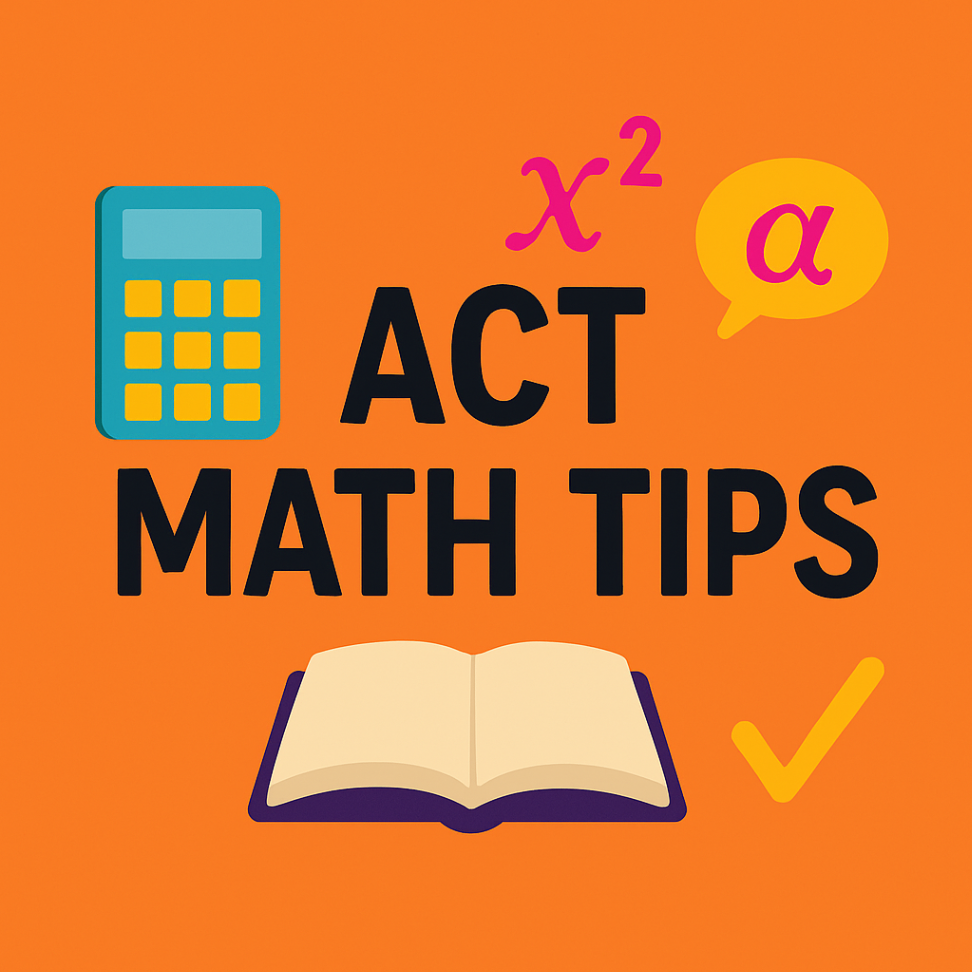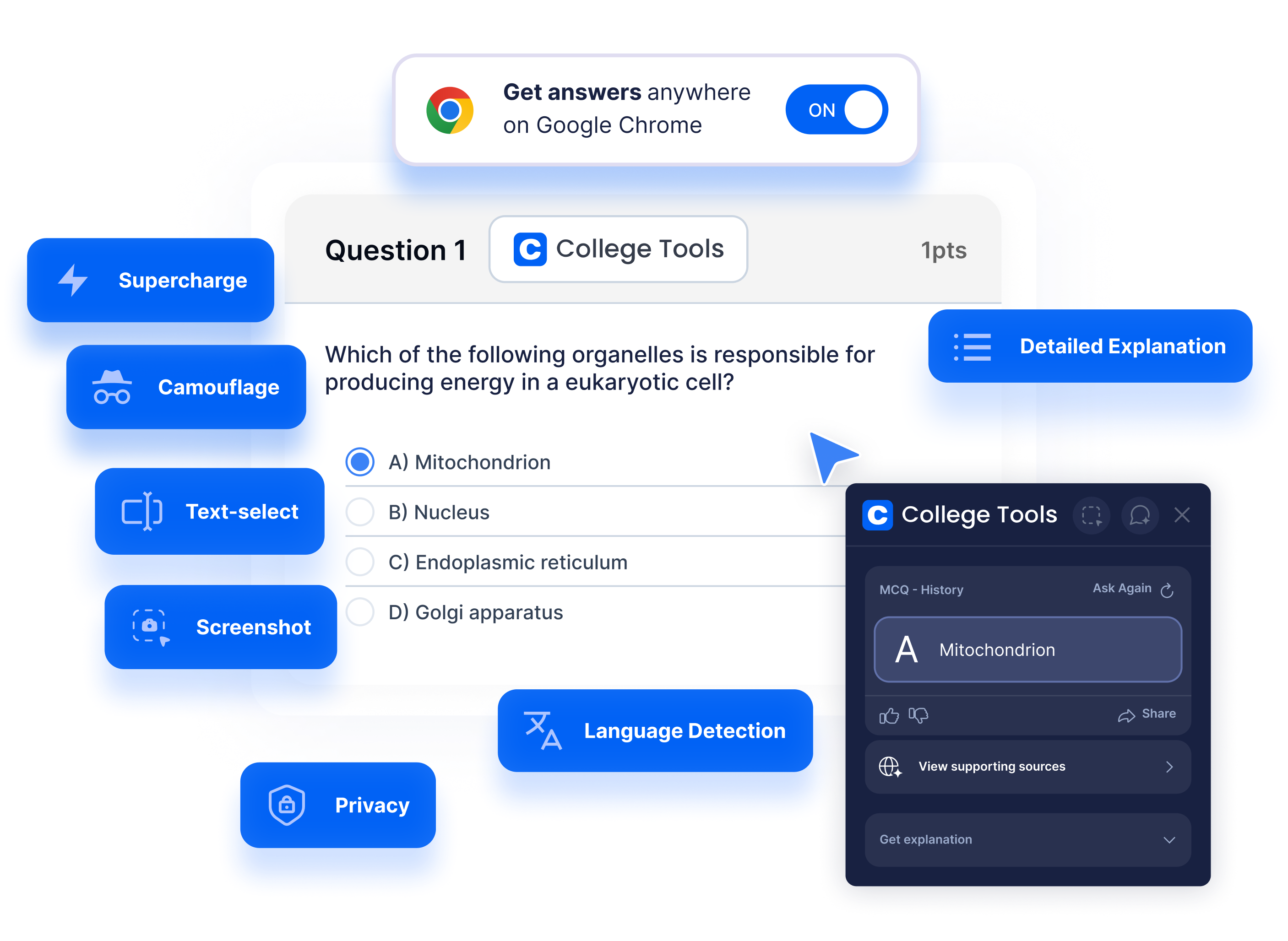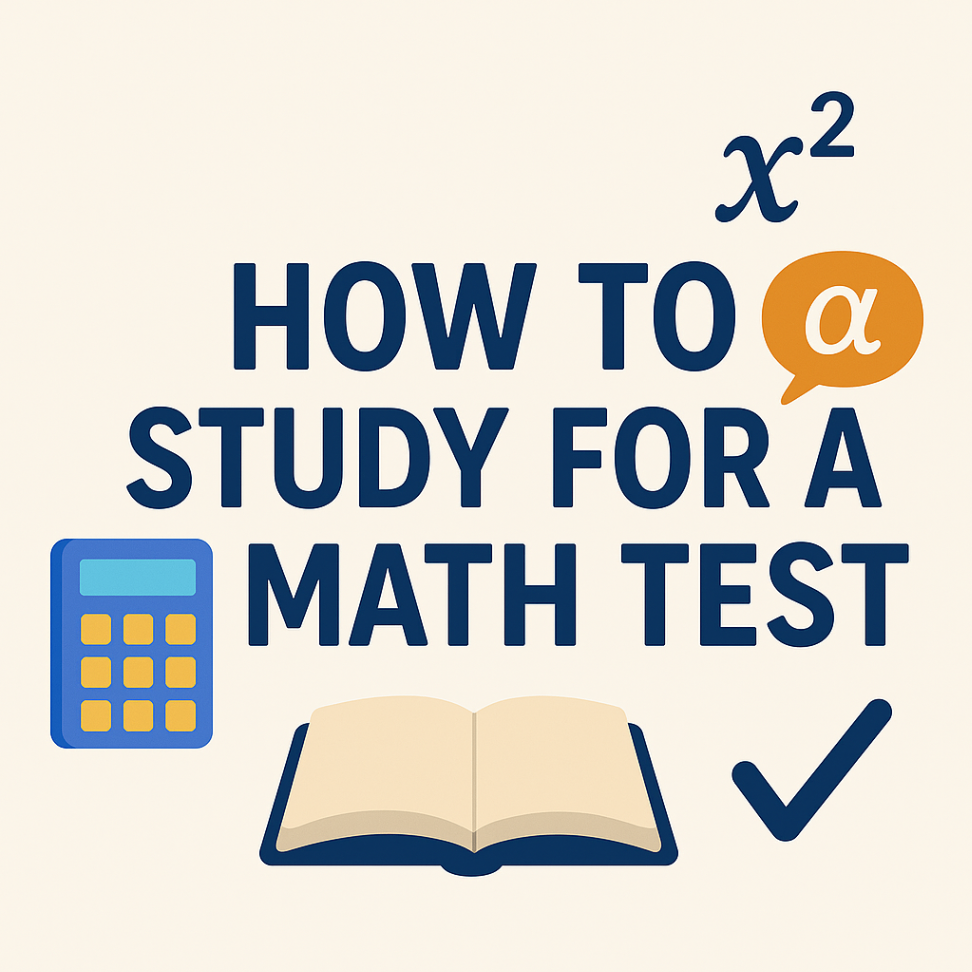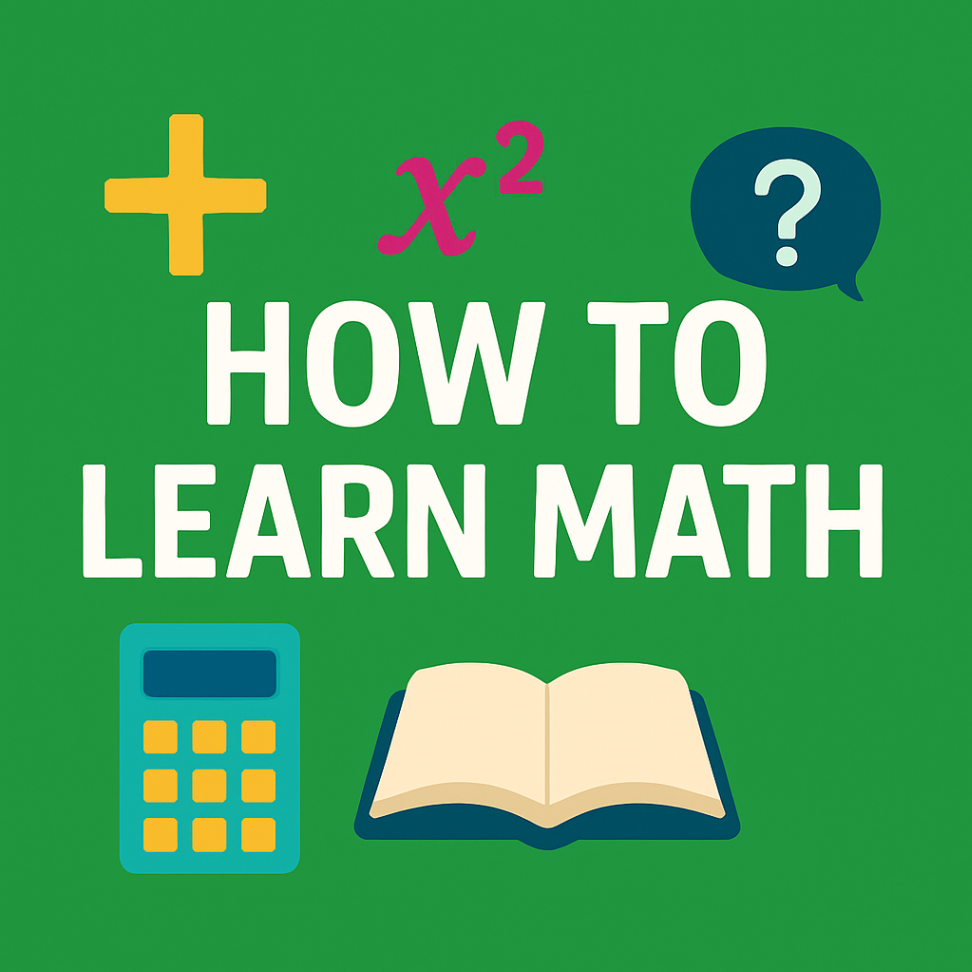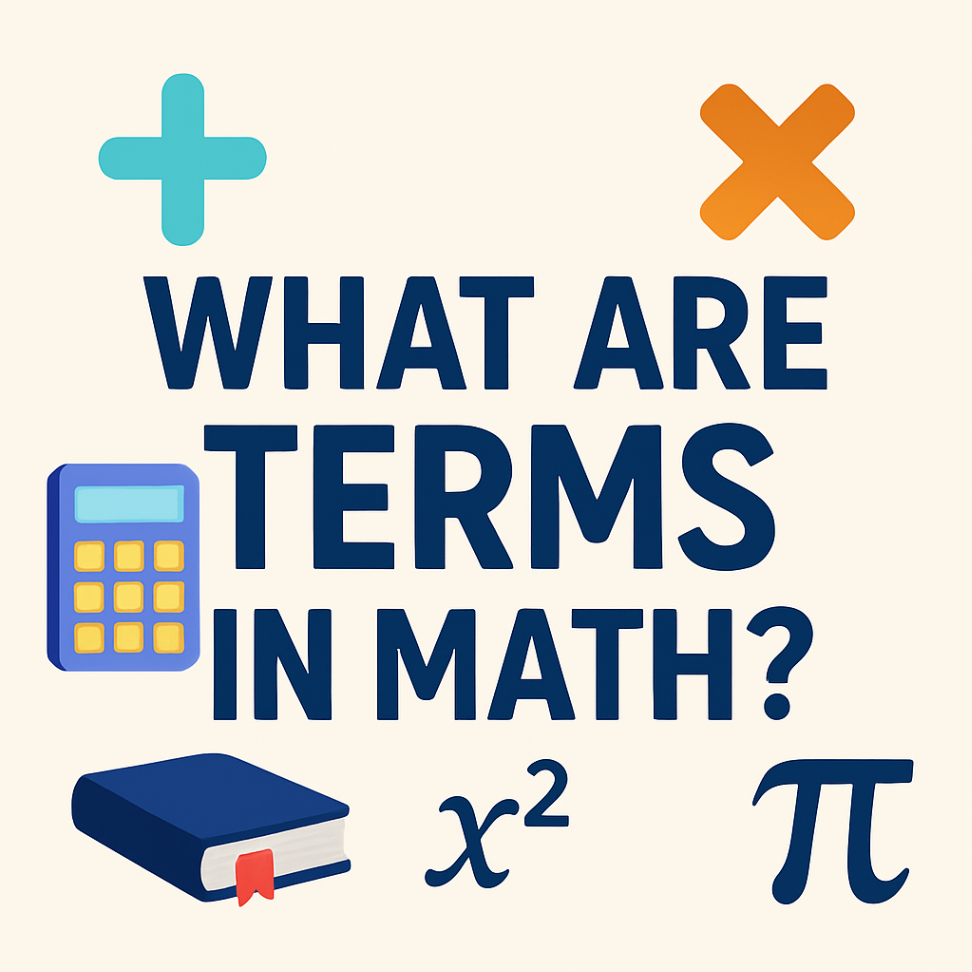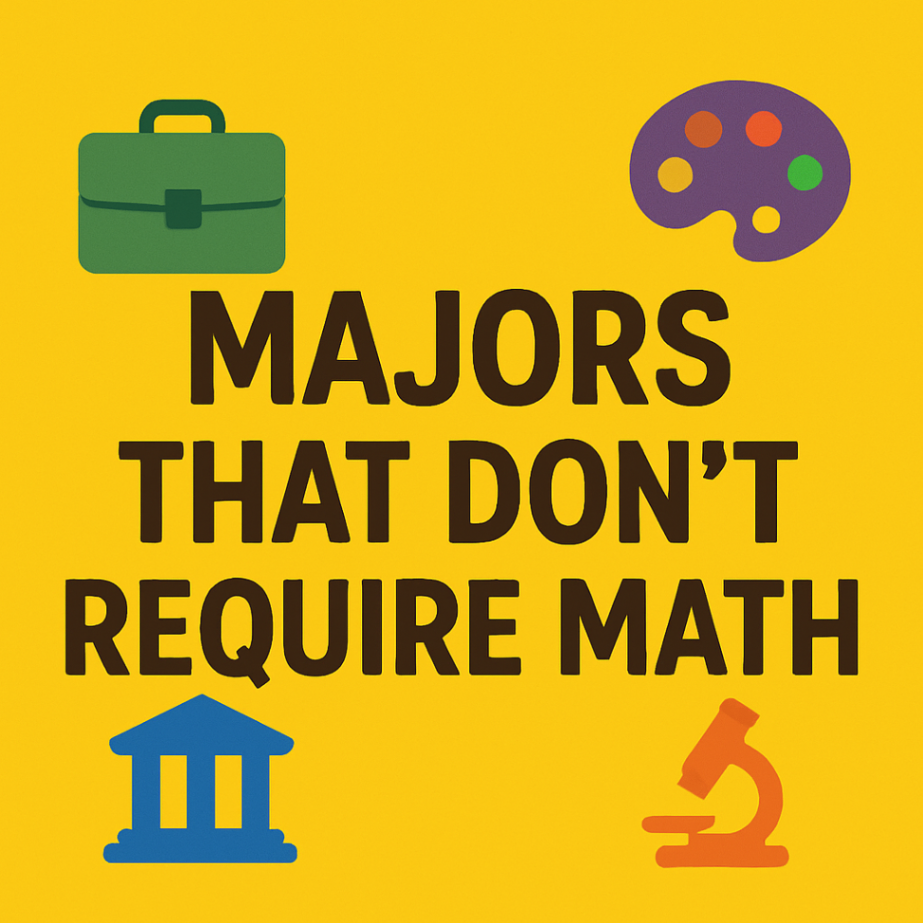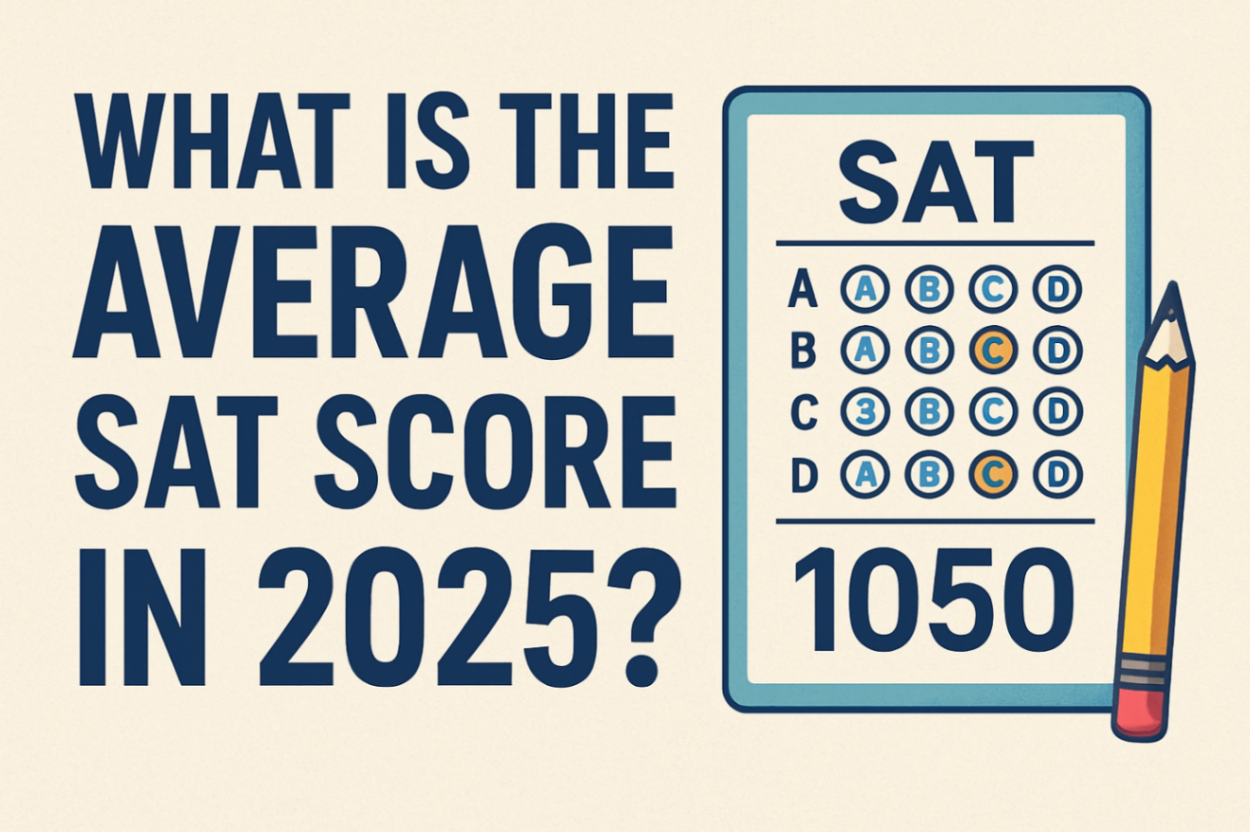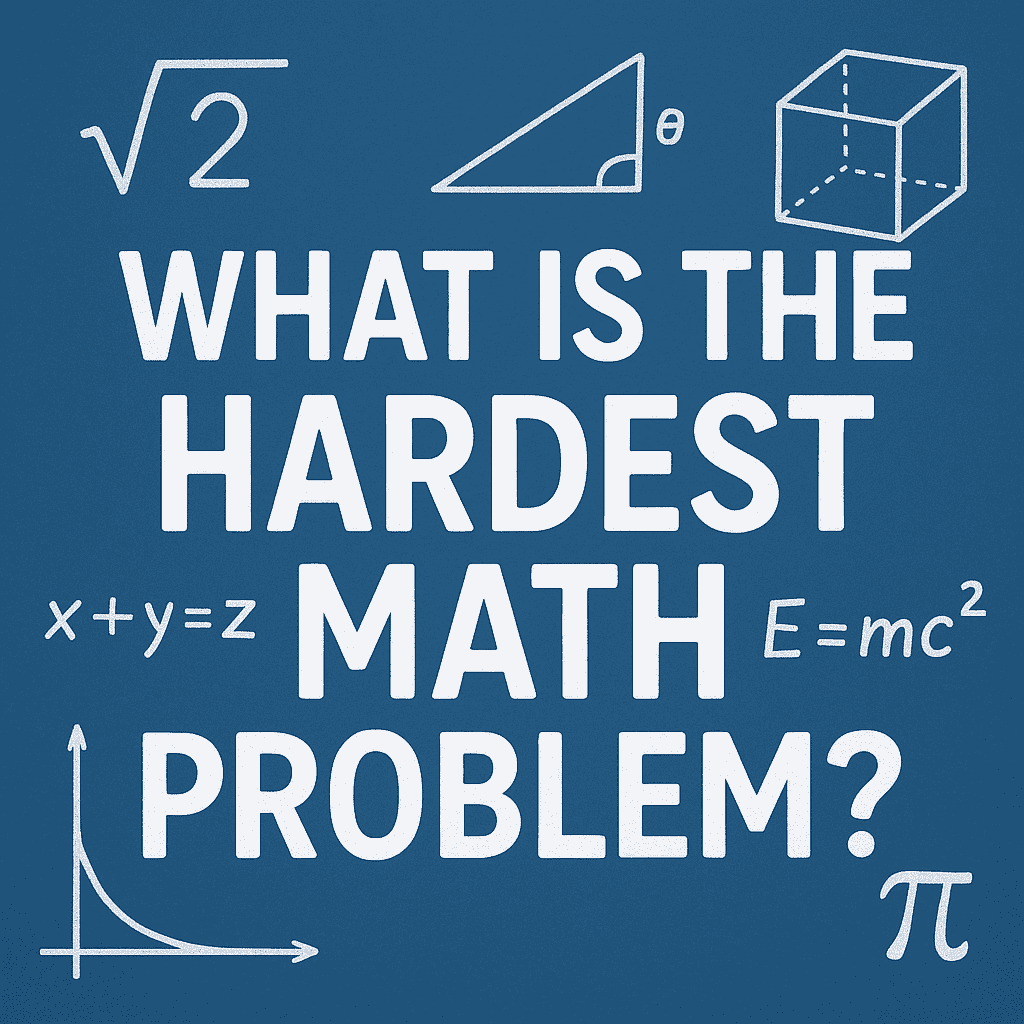Table of contents
- Understanding the ACT Math Section
- Essential ACT Tips for Math
- ACT Math Tips and Formulas: What You Need to Know
- ACT Math Tips and Tricks
- Tips for ACT Math
- ACT Tips Math: Content-Specific Strategies
- Tips for the ACT Math Section: Test Day Preparation
- ACT Math Test Tips: Advanced Techniques
- Tips for Math ACT: Building Mathematical Confidence
- Common ACT Math Pitfalls to Avoid
- Building Your ACT Math Study Plan
Preparing for the ACT Math section can feel overwhelming, but with the right ACT math tips, you can boost your confidence and score significantly. Whether you're looking for fundamental strategies or advanced techniques, this comprehensive guide provides everything you need to succeed on one of the most challenging sections of the ACT.
The ACT Math test consists of 60 multiple-choice questions that you'll need to complete in 60 minutes, covering topics from basic algebra through trigonometry. Success requires not just mathematical knowledge, but also strategic test-taking skills and efficient time management.
Understanding the ACT Math Section
Before diving into specific math ACT tips, it's essential to understand what you're facing. The ACT Math section tests skills typically acquired through the beginning of 12th grade, covering six main areas: Number and Quantity, Algebra, Functions, Geometry, Statistics and Probability, and Mathematical Modeling.
Unlike other standardized tests, the ACT Math section allows calculator use, but all problems can be solved without one. This unique feature means that knowing when and how to use your calculator effectively becomes a crucial strategy. When you encounter particularly complex calculations during practice, utilizing tools like a Free AI Math Solver can help you understand different solution approaches and verify your work, building confidence for test day.
Question Distribution and Difficulty Progression
The ACT Math section follows a general pattern of increasing difficulty, with easier questions appearing early and more challenging problems toward the end. Approximately 24 questions focus on basic algebra and linear equations, while the remaining questions cover more advanced topics including coordinate geometry, trigonometry, and complex number operations.
Essential ACT Tips for Math
ACT tips for math success begin with mastering time management. With 60 questions in 60 minutes, you have exactly one minute per question on average, but this doesn't mean each question should take the same amount of time.
The Strategic Approach to Timing
Experienced test-takers recommend spending 30-40 seconds on easier questions (typically the first 30-35 questions) to save time for more complex problems later. This front-loading strategy ensures you secure points on problems you can solve quickly while leaving adequate time for challenging questions that require more thought.
If you find yourself spending more than 90 seconds on any single question, it's time to move on. Mark the question and return to it if time permits. Remember, there's no penalty for wrong answers on the ACT, so always guess if you're running out of time.
Pacing Milestones
Establish timing checkpoints throughout the test. Aim to complete the first 30 questions in 25-30 minutes, leaving 30-35 minutes for the more challenging final 30 questions. These milestones help you stay on track and adjust your pace if necessary.
ACT Math Tips and Formulas: What You Need to Know
While the ACT provides some formulas, knowing key ACT math tips and formulas by heart saves valuable time during the test.
Essential Formulas to Memorize
Geometry Formulas: - Area of a triangle: A = (1/2)bh - Area of a circle: A = πr² - Circumference of a circle: C = 2πr - Volume of a rectangular prism: V = lwh - Volume of a cylinder: V = πr²h
Algebraic Relationships: - Quadratic formula: x = (-b ± √(b² - 4ac)) / 2a - Distance formula: d = √[(x₂ - x₁)² + (y₂ - y₁)²] - Slope formula: m = (y₂ - y₁) / (x₂ - x₁)
Trigonometric Ratios: - sin θ = opposite/hypotenuse - cos θ = adjacent/hypotenuse - tan θ = opposite/adjacent
Special Right Triangles
Memorize the ratios for 30-60-90 and 45-45-90 triangles. These appear frequently and can be solved quickly without a calculator when you know the patterns.
Understanding these formulas becomes much easier when you have a solid grasp of fundamental mathematical concepts like what are terms in math, which form the building blocks of algebraic expressions used throughout the ACT Math section.
ACT Math Tips and Tricks
ACT math tips and tricks go beyond memorizing formulas – they involve strategic approaches to problem-solving that can save time and increase accuracy.
The Power of Backsolving
When answer choices contain specific numbers, consider working backwards. Start with the middle answer choice (usually choice C) and test whether it satisfies the problem conditions. This technique is particularly effective for word problems and can often be faster than setting up complex equations.
Picking Numbers Strategy
For problems with variables in the answer choices, substitute simple numbers for the variables. Choose numbers that are easy to work with, such as 2, 3, 5, or 10. Plug these values into the original problem and each answer choice to see which one produces the correct result.
Elimination Techniques
Sometimes you can eliminate answer choices without fully solving the problem. Look for answers that are clearly too large, too small, or don't make sense in the context of the problem. This strategy is particularly useful when you're running short on time.
Tips for ACT Math
Understanding tips for ACT math calculator usage can significantly impact your performance. While calculators are allowed, strategic use is key.
When to Use Your Calculator
Use your calculator for: - Complex arithmetic operations - Converting between fractions and decimals - Checking your work on problems you've solved by hand - Graphing functions when visualization helps
When to Avoid Your Calculator
Don't reach for your calculator for: - Simple arithmetic (addition, subtraction, basic multiplication) - Problems involving special right triangles - Basic fraction operations - Simple algebraic manipulations
Remember, over-reliance on calculators can actually slow you down on many ACT Math problems.
ACT Tips Math: Content-Specific Strategies
Different ACT tips math approaches work better for different types of problems.
Algebra and Functions
For algebraic problems, look for opportunities to factor, use the distributive property, or apply algebraic identities. Many complex-looking expressions can be simplified dramatically with the right approach.
When working with functions, pay attention to domain and range restrictions. The ACT often asks about function composition, so practice evaluating f(g(x)) and similar expressions.
Geometry Problem Strategies
Geometry problems on the ACT often provide figures, but don't assume they're drawn to scale. Instead, use the given measurements and relationships to solve problems analytically.
For coordinate geometry, plotting points can be helpful, but also consider whether algebraic methods might be more efficient.
Statistics and Probability
These problems often involve interpreting charts, graphs, or data sets. Read carefully to understand what the question is asking, as these problems sometimes require multiple steps or careful attention to units.
Tips for the ACT Math Section: Test Day Preparation
Effective tips for the ACT math section include both mathematical preparation and test-day strategy.
Pre-Test Preparation
In the weeks leading up to your test, focus on timed practice. Work through complete math sections under testing conditions to build stamina and refine your pacing strategy.
Review your mistakes carefully. Understanding why you got a problem wrong is more valuable than simply getting it right. Look for patterns in your errors – are you making computational mistakes, misreading questions, or struggling with specific content areas?
For comprehensive preparation that addresses all aspects of mathematical learning, consider reviewing effective how to study for a math test strategies that can enhance your overall test preparation approach.
Test Day Strategies
Arrive at the test center well-rested and with all required materials, including an approved calculator with fresh batteries. During the test, read each question carefully and make sure you're answering what's being asked.
Use scratch paper liberally. Writing out your work helps prevent computational errors and makes it easier to check your answers if time permits.
ACT Math Test Tips: Advanced Techniques
For students aiming for top scores, these advanced ACT math test tips can provide the extra edge needed for excellence.
Pattern Recognition
Many ACT Math problems follow predictable patterns. As you practice, start recognizing these patterns so you can solve similar problems more quickly on test day.
Estimation Skills
Sometimes you don't need an exact answer – a good estimate can help you eliminate wrong choices quickly. This is particularly useful for geometry problems involving areas or volumes.
Working Backwards from Answers
On challenging problems, sometimes it's easier to check which answer choice works rather than solving the problem from scratch. This technique is especially powerful when combined with elimination strategies.
Tips for Math ACT: Building Mathematical Confidence
Success with tips for math ACT preparation isn't just about knowing formulas and strategies – it's also about building confidence and reducing test anxiety.
Practice with Realistic Materials
Use official ACT practice tests and questions that reflect the current test format. This familiarity helps reduce anxiety and ensures you're preparing for the actual test experience.
Identify Your Strengths
Focus on your strongest areas first to build confidence, then gradually work on challenging topics. Remember that you don't need to answer every question correctly to achieve a strong score.
For students who need additional support with fundamental mathematical concepts, exploring comprehensive approaches to how to learn math can provide the solid foundation necessary for ACT success.
Develop a Growth Mindset
View mistakes as learning opportunities rather than failures. Each error provides information about areas that need more attention, bringing you closer to test day success.
Common ACT Math Pitfalls to Avoid
Understanding what to avoid is just as important as knowing what to do. These common mistakes can cost valuable points:
Misreading Questions
Always read the entire question carefully. Many students solve for one variable when the question asks for a different value or expression.
Computational Errors
Double-check your arithmetic, especially when working under time pressure. Many errors occur during basic calculations rather than in understanding concepts.
Forgetting to Check Units
Pay attention to units in word problems. Make sure your final answer is expressed in the units requested by the question.
Leaving Questions Blank
Never leave questions unanswered. Since there's no penalty for wrong answers, always make your best guess if you're unsure.
Building Your ACT Math Study Plan
Effective ACT math tips implementation requires a structured study approach tailored to your current skill level and target score.
Assessment and Goal Setting
Begin with a diagnostic practice test to identify your current performance level and specific areas needing improvement. Set a realistic target score based on your college goals and current abilities.
Content Review and Practice
Systematically review each content area tested on the ACT Math section. Focus additional time on your weakest areas while maintaining strength in areas where you already perform well.
Strategy Integration
As you become more comfortable with the mathematical content, integrate test-taking strategies into your practice. Time yourself regularly and practice the specific techniques outlined in this guide.
Final Preparation
In the final weeks before your test, focus on timed practice tests and strategy refinement rather than learning new content. Build confidence through repeated success on practice problems.
When students encounter particularly challenging mathematical concepts, understanding what is the hardest math problem can provide perspective on the nature of mathematical difficulty and help maintain motivation during ACT preparation.
Conclusion
Mastering the ACT Math section requires a combination of mathematical knowledge, strategic thinking, and efficient test-taking skills. The ACT math tips outlined in this guide provide a comprehensive framework for success, from basic time management to advanced problem-solving techniques.
Remember that improvement takes time and consistent practice. Focus on understanding concepts deeply rather than just memorizing procedures, and always practice under timed conditions to simulate the actual test experience.
The most successful ACT test-takers combine solid mathematical foundations with strategic test-taking approaches. By implementing these math ACT tips systematically and practicing regularly, you'll build both the knowledge and confidence needed to achieve your target score.
Whether you're aiming for a modest improvement or shooting for a perfect score, the strategies in this guide will help you maximize your performance on test day. Stay focused, practice consistently, and trust in your preparation when you sit down to take the ACT Math section.
Frequently Asked Questions
How much should I rely on my calculator during the ACT Math section?
While calculators are allowed on the ACT Math section, use them strategically rather than for every problem. All ACT Math questions can be solved without a calculator, and many are actually faster to solve by hand. Use your calculator for complex computations, checking your work, and problems involving decimals or advanced functions. Avoid using it for basic arithmetic, simple fractions, or problems involving special right triangles, as mental math will be quicker.
What's the best way to manage my time during the 60-minute ACT Math section?
Aim to spend about 30-40 seconds on easier questions (typically the first 30-35) to save time for more complex problems later. Set timing milestones: complete the first 30 questions in 25-30 minutes, leaving 30-35 minutes for the final 30 questions. If you spend more than 90 seconds on any question, mark it and move on. Since there's no penalty for wrong answers, always guess if you're running out of time.
Which formulas should I memorize for the ACT Math section?
While the ACT provides some basic formulas, memorizing key ones saves valuable time. Essential formulas include: area and circumference of circles, areas of triangles and rectangles, volumes of basic shapes, the quadratic formula, distance and midpoint formulas, and basic trigonometric ratios. Also memorize the ratios for 30-60-90 and 45-45-90 special right triangles, as these appear frequently and can be solved quickly without a calculator.
How can I improve my accuracy on ACT Math problems?
Improve accuracy by reading questions completely and carefully, ensuring you answer what's being asked rather than stopping at an intermediate step. Use scratch paper to show your work clearly, which helps prevent computational errors and makes checking easier. Double-check units in word problems and verify that your answer makes sense in context. Practice estimation skills to quickly eliminate unreasonable answer choices, and always review your work if time permits.

